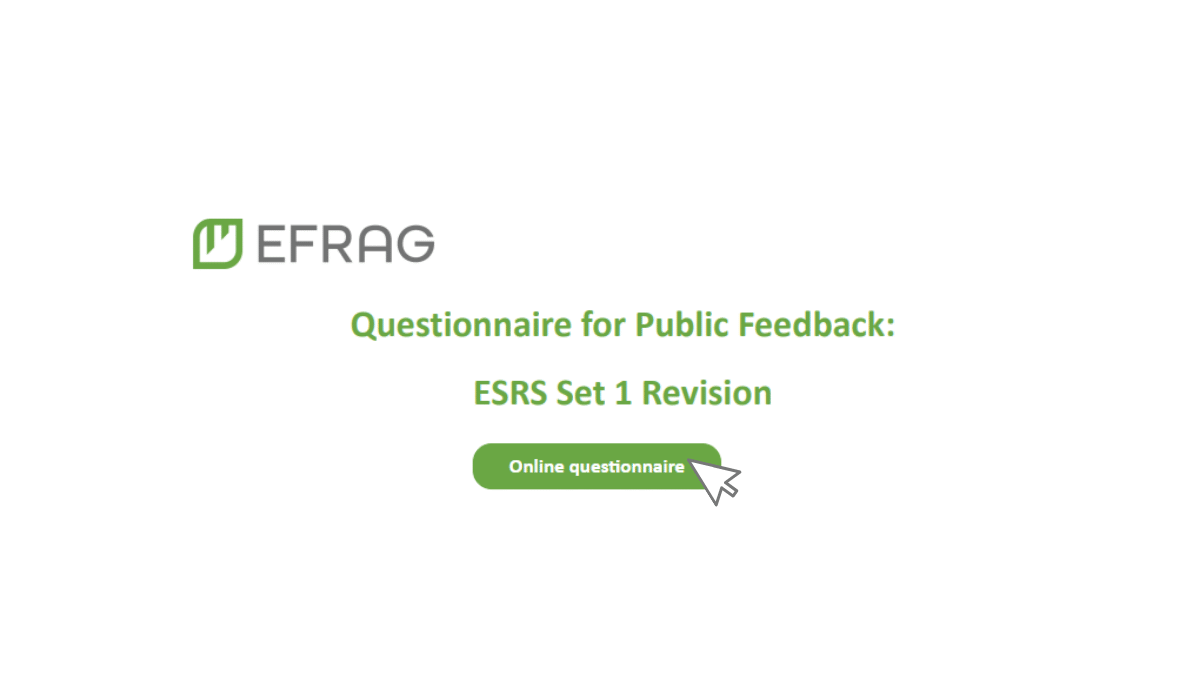
CSRD: Practical, hands-on recommendations for the European Sustainability Reporting Standards
May 15, 2025
Climate & Company took part in the latest EFRAG consultation on the revision of ESRS Set 1 following the European Commission’s Omnibus proposals, published on 26 February 2025. We appreciate EFRAG’s consultative approach and thank the board for the opportunity to provide our practical insights. Our input was developed in collaboration with our partner Climate Focus and is grounded in practical experience. To ensure these standards are effective and implementable, EFRAG now needs to harmonize overlapping requirements with international frameworks, issue clear, sector-specific guidance and tools, and simplify the double materiality assessment without compromising ambition.
A significant part of the feedback draws on insights from a Climate & Company workshop series on double materiality analysis conducted with three German food sector companies, BIO COMPANY, follow food and Terra Naturkost Handel. The workshops were part of the “Making Sustainable Finance Work”-Project, funded by Stiftung Mercator, which aims to overcome key implementation barriers of sustainable finance regulation, particularly the CSRD. We also broadened our perspective through our structured exchanges and dialogues with a diverse range of reporting entities as well as our insights on simplification and policy coherence from our work on the omnibus for the Heinrich Böll Foundation.
Our key findings and recommendations:
- Simplification can be achieved without sacrificing ambition nor competitiveness. Providing the right guidance is key to simplify the process and help reporting entities.
- We provided targeted recommendations to simplify the double materiality assessment (DMA) without compromising its purpose. The DMA is resource-intensive, and many companies lack experience with the process. However, based on our practical work with companies, we found that sector-specific guidance, clear evaluation frameworks, and stronger topic prioritization would significantly help reduce complexity.
- Furthermore, we provided feedback on linking Impacts, Risks and Opportunities (IROs) to material topics and Disclosure Requirements (DRs). The process of identifying material information is challenging and too complex. Ideally the process of mapping topics, IROs and DRs would be enhanced and clarified in the standard. Tools to enable companies should be finalized and published.
- We found that quantitative and narrative disclosure diverge from international reporting standards. Our recommendation is to facilitate stronger alignment with international standards to improve consistency, avoid fragmentation and to meet financial institutions’ expectations. This will also enable companies to maintain access to finance and reduce refinancing risks.
- Similarly, we provided recommendations to improve the alignment of key EU regulations (e.g. SFDR, ESRS, CSDDD). Currently, similar disclosure requirements vary significantly across these frameworks. By mapping overlaps, harmonizing definitions and timelines, and reducing duplication, complexity can be lowered, leading to greater clarity and a higher willingness to report.
We strongly support the revision of the ESRS Set 1 to make it easier to navigate for companies and reduce its complexity without compromising its effectiveness and usefulness. The ESRS should be seen as a strategic tool for risk management and competitiveness, not just as a set of standards to comply with. Our practical experience demonstrates that smart, targeted legislation leads to more meaningful assessments and ultimately benefits companies through greater transparency and improved decision-making.
Media Contact:
Laura Bethke
laura.bethke@climcom.org
+49 0151 18485240
